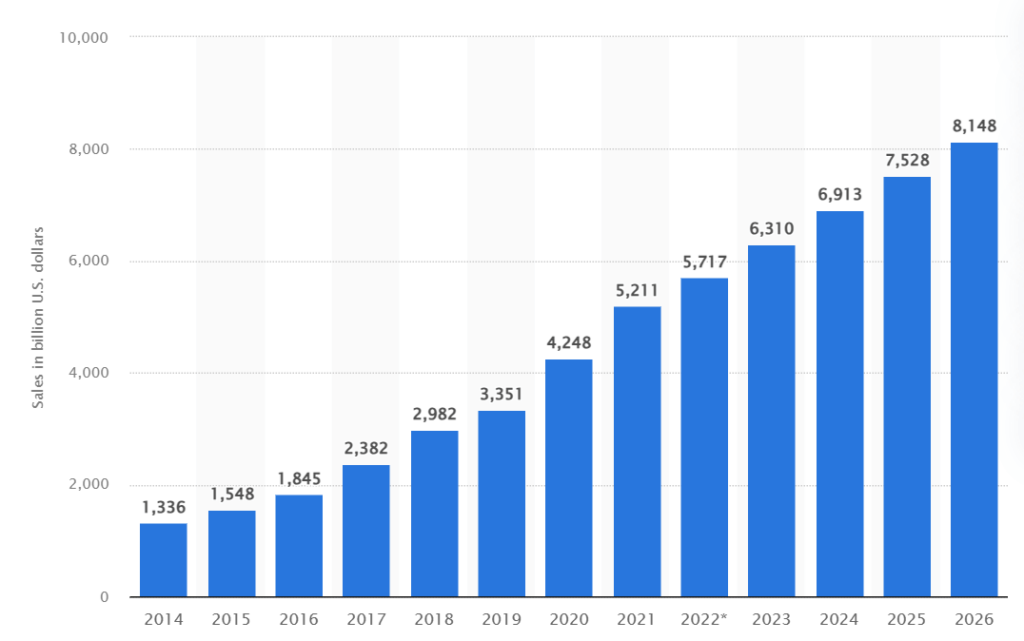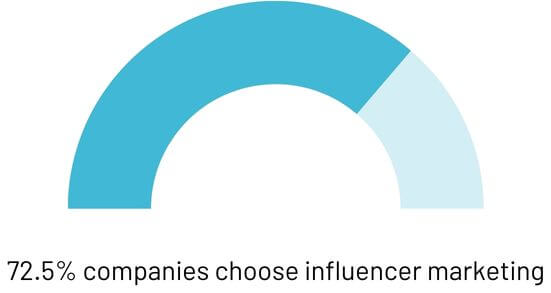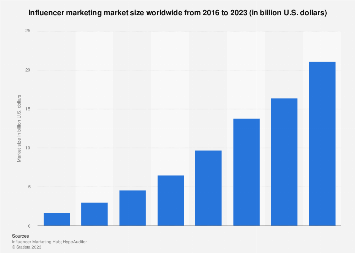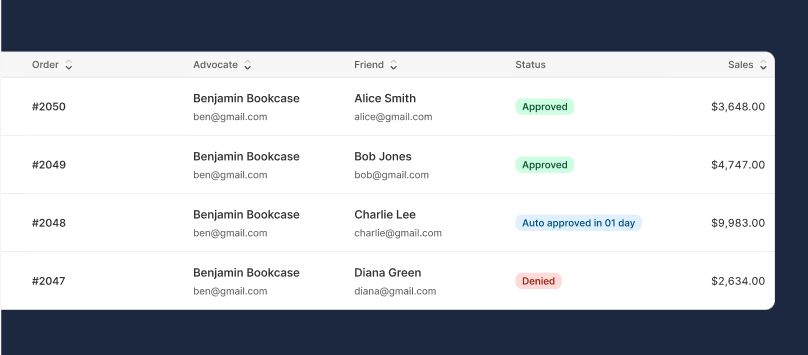Affiliate marketing is booming in 21st century. It is not a new concept, but it has gained popularity and is predicted to boom in the 21st century, thanks to the growth of digital devices, e-commerce, social media, and influencer marketing.

Affiliate marketing’s 21st-century boom is driven by:
- Mobile prevalence.
- E-commerce thriving.
- Global reach in affiliate marketing.
- Cost-effective business model.
- Consumer trust in online KOLs.
- Social media for audience connections.
- Affiliate marketing as a second job choice.
- Low-risk business model.
- Advances in affiliate management tools.
Let’s dive into it!
1. The prevalence of mobile usage
Nowadays, everyone has a smartphone, and it’s changing the way we approach products. Having a mobile device means we can find out about things whenever and wherever. We connect with people and businesses via social media and use dozens of mobile services daily. People shop, read, use apps, watch movies, and pay bills with their smartphones.
Globally, there are approximately 6.94 billion smartphones, representing approximately 85% of the total global population of 8 billion.
90% of mobile time is spent on apps, and 60% of e-commerce website traffic comes from mobile devices. This is a perfect condition to give a seamless experience for users to engage with affiliate content.
So, it is an undeniable truth that the affiliate marketing industry has grown exponentially in just a few years due to the digitization of services, products, services, and payment methods.
2. E-commerce thriving
COVID-19 enhances this trend. More and more of us are leaving traditional stores and going all-in on online shopping. PwC believes the pandemic created a “historic and dramatic shift in consumer behavior”. The situation significantly contributed to the growth of affiliate marketing for several reasons.
A June 2022 World Bank press release stated that 83% of adults use digital payments. In the US market in particular, 13% of consumers shop online once a week, while 44% shop online twice or more.
In this manner, global e-commerce sales are expected to reach $6.54 trillion by 2023, as reported by Statista.
Affiliate marketing thrives on online shoppers. With more people buying stuff on the internet, businesses are excited to collaborate with affiliates to reach more people and sell things online.
Plus, e-commerce allows diverse products. There are more and more types of products and niches that affiliates can choose from to promote, making it easier to find things that match their audience’s interests.

3. Affiliate Marketing has a Global Reach
The internet provides global connectivity, allowing affiliates to collaborate with businesses worldwide. This global reach opens up new markets and audiences, contributing to the growth of affiliate marketing on an international scale.
According to a report by Shopify, e-commerce breaks down geographical barriers. Affiliates can promote products to a global audience, reaching people who might not have been accessible with traditional marketing methods. The report states that 57% of online shoppers have made purchases from an overseas retailer in the past six months.
So, no surprise that businesses are increasingly turning to e-commerce to expand their customer base and grow their revenue.
4. Affiliate marketing is a cost-effective business model
Affiliate marketing is Performance-based advertising, which means advertisers pay affiliates based on the actual sales or leads generated
According to a 2022 report by Statista, the average cost per click (CPC) for Google Ads is $2.89. This means you could potentially spend hundreds or even thousands of dollars on clicks without guaranteeing any sales. With affiliate marketing, you only pay for the conversions that occur through your affiliate link, eliminating wasted expenditure on clicks that don’t lead to revenue.
Plus, any company can start its affiliate program with less than $5,000. In fact the cost is significantly lower if your business is all online-based, such as in dropshipping. For example, the cost for affiliate management for a medium Shopify owner ranges from 180$ – $1200 yearly, depending on the business scale and affiliate marketing application.
There are always solutions to deploy affiliate programs with any budget, often requiring no upfront investment beyond time and effort. This compares favorably to traditional methods like TV ads, radio commercials, or print advertising, which can cost tens of thousands of dollars just to set up, not considering ongoing campaign costs.
5. Consumers believe in online KOL
According to a report by Business Insider, as people become more comfortable with online shopping, their trust in affiliate recommendations also grows. The report states that 84% of people trust online reviews as much as a personal recommendation.

Plus, affiliates are getting diverse in types. The report by Forbes states that the global influencer marketing market value stood at 21.1 billion U.S. dollars as of 2023, having more than tripled since 2019. According to a report by Marketing Mag, recent studies forecast that 72.5% of US marketers from companies with 100 or more employees will use influencer marketing in 2022.

Related Article: Top 8 Affiliate Marketing Trends for 2024
6. Social media allows affiliates to connect with audiences
The dominance of platforms like Facebook, TikTok, and Twitter in the last 05 years simplifies affiliate marketing campaigns.
According to Our World in Data, the percentage of adults in the United States using social media has surged from 5% in 2005 to 79% in 2019.
The prominence of influencer marketing and brand partnerships has elevated content marketing, enabling affiliate marketers to transition into influencers, amplify brand awareness, and cultivate a robust audience base.
With millions of internet users browsing social media platforms for entertainment, inspiration, and product recommendations daily, it is no surprise that marketers are harnessing the power of social media’s most recognizable faces for promotion.
According to a report by Statista, the global influencer marketing market value stood at 21.1 billion U.S. dollars as of 2023, having more than tripled since 2019. Around 27% of marketing spending is set aside for influencer affiliate marketing.
Authority Hacker reported that 35.5% of affiliate marketers use organic social media marketing as a primary traffic source. With the booming of social media, that number seems to be rising in upcoming years.
7. More and more people choose affiliate as a second job
Affiliate marketing is becoming increasingly popular as a side hustle.
Side hustles are becoming increasingly popular after the job losses shock of COVID-19. It is a flexible and low-cost way to earn extra income. It can be done from anywhere, at any time, and requires minimal investment.
The primary costs of getting started with affiliate marketing can start at $0, while the maximum startup costs can be as high as $23,259
A professional affiliate typically spends less than 06 hours a day for it. Thanks to its flexible nature, you can do it in your free time and the schedule can be very flexible.
Everything to do is just kickstart your journey with just a website and some good content, and in some cases, a robust social media presence is enough. The plus point of affiliate marketing lies in its ability to be carried out from any location, at any time, and it demands only a modest investment.
8. Affiliate marketing is a low-risk business model
Affiliate marketing is often touted as a low-risk venture for both affiliate and business. The data below state why affiliate marketing can be a relatively safe bet.
For affiliates, affiliate marketing simply provides a lot of opportunities to earn.
A 2022 report by Leadfeeder showed that 80% of marketers use multiple affiliate programs. This demonstrates the trend of diversifying income streams and reducing reliance on a single source in affiliate marketing.
For businesses, affiliate marketing requires a low upfront investment.
Unlike traditional marketing methods, affiliate marketing doesn’t require you to spend on printed advertising, inventory, or physical stores. The brand doesn’t need to manufacture products, manage inventory, or handle customer service.
A 2023 study by Shopify found that 62% of online businesses spend less than $5,000 on marketing in their first year. Affiliate marketing easily fits within this budget.
With low investment costs, businesses can easily adapt to changing trends and consumer behavior. As new, featureful platforms emerge, affiliate programs can be adjusted to stay relevant without causing significant losses.
The affiliate marketing industry has grown by 47% between 2018 and the end of 2021, even during the pandemic.
9. Advancements in affiliate management tools
The emergence of AI and tech development changed the whole marketing industry at a significant pace.
For affiliates, AI tools for affiliate marketing use artificial intelligence technology to generate content, analyze data, segment audiences, and handle other time-consuming tasks with the click of a mouse.
For merchants, how well their affiliate campaign performs relies heavily on the affiliate marketing app they are using. Some of the best affiliate marketing automation features include:
- Affiliate Management Software
- Customer Support through Chatbots
- Customer-based schedules for scheduling appointments
- Automated e-mail or SMS marketing campaigns
- Social listening tools & brand tracking platforms
- Helpful billing and payment reminders
There are various features and tools to get familiar with. However, you can find them integrated into an all-in-one affiliate management app BixGrow for less than $300 a year.

Bottom lines
In conclusion, affiliate marketing is booming in 21st century. It is an irreversible trend Affiliate marketing is a cost-effective, low-risk, and scalable way of promoting products and services online. Affiliates can earn commissions by recommending products they trust and enjoy, while merchants can reach new audiences and increase their sales. Affiliate marketing is also adaptable to changing consumer preferences and market trends, making it a future-proof strategy for online business success.